Suppose you are new to the trade and starting out as a new installer - you might be feeling overwhelmed by the variety of options available.
In that case, it's essential to learn and understand the different types of boilers available and the technology behind them, allowing you to feel confident when recommending the best boiler for your new clients.
That's where we come in - we're here to explain the different types of boilers and discuss the pros and cons of each type - so that you can make an informed decision to help you understand which one best fits your client's needs.
What is a Combination Boiler?
A combination or 'combi' boiler can provide both a high efficiency of water and central heating in a single compact unit.
A gas combi boiler will heat water directly from the mains when you turn on any tap fixtures, so homeowners won't require a separate cold water storage tank in the roof space or need a hot water storage cylinder.
As the boiler can provide both heating and hot water, they are typically less expensive to install in contrast to a system boiler, as an additional hot water cylinder would be required. This coincidentally makes combi boilers suitable for smaller homes where space is limited.
That's one of the reasons why combination boilers are the most popular type of boiler in the UK, as they are used by around 80% of UK households - however, It's advised that combination boilers are not suitable for homes where the demand for hot water is higher.
When the temperature of your thermostat drops below the set point, the boiler will begin to fire up. A heat exchanger is one of the many internal components of a combi boiler that works by transferring heat from the combustion gases to the water. The hot water is then circulated around the central heating system. A valve inside the boiler will divert the heat into the domestic hot water supply, providing hot water until the tap is turned off.
There are many advantages of having a combi boiler - one is that hot water is distributed at mains pressure, which means that homeowners can get a powerful shower without needing a separate pump.
With a combi boiler, as there is no need for a water tank in the loft, homeowners will not have to worry about the potential risk of loft pipework freezing during cold winter months.
Additionally, without the extra pipework, a combination boiler installation will typically be a lot cheaper.
Overall, combi boilers are a good choice for small homes with limited space and moderate hot water demands. Most provide a high-efficiency rating that can save you money on your energy bills.
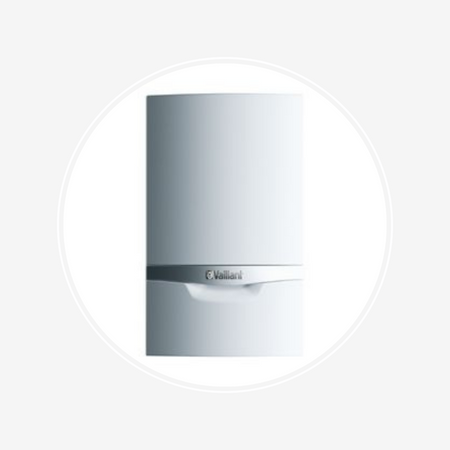
What is a System Boiler?
A system boiler is a type of boiler that's commonly used in larger properties or homes with a greater demand for hot water.
Unlike combi boilers, system boilers require a cylinder which is used for storing hot water - however, the primary heating and hot water system components are actually built into the boiler itself. This makes for a quicker and easier installation process for installers.
The boiler works by heating up water stored in a hot water cylinder, which is then distributed around the property through a network of radiators and/or underfloor heating. Unlike a regular boiler, a system boiler will not need to rely on a cold water storage tank in the loft. This makes it a more compact and efficient option and suitable for homes with little or no loft space.
Systems boilers are also compatible with solar water heating systems, which deliver many environmental benefits and lower energy bills for your clients.
With a system boiler, homeowners can take advantage of their vast array of unique features, such as:
- Suitable for homes with more than one bathroom
- Continuous supply of hot water to any number of taps at the same time
- No loft tank requirement, freeing up space and eliminating worries about leaks or frost damage.
- Economical boiler operation
- Built-in components make installation quicker and neater.
Overall, system boilers are a good choice for homes with high hot water demand as they can provide a more significant supply of hot water than combination boilers.
With any boiler, there are some drawbacks. One of the most common concerns with a system boiler is that system boilers can take longer to heat up water, which isn't ideal if your client lives in a busy household.

What is A Regular Boiler?
There's nothing run-of-the-mill about regular boilers, and it's important to not let the name fool you…
A gas regular boiler, sometimes known as a conventional, traditional or even a heat-only boiler, is designed to provide heating and hot water with the support of an additional cold water tank and hot water cylinder.
Regular boilers are best suited for properties considered larger or older because conventional boilers are an easier and faster way to replace and update an existing heating system in an older property.
This is because older heating systems won't be able to cope with the pressure that a combination or system boiler would produce, so a regular boiler would be perfect for the job.
They are also suitable for homes in a low water pressure area as the flow rate is dependent on gravity instead of being dependent on mains pressure. That's because the cold water tank is usually installed as high above the boiler as possible, typically in a loft space.
If you have a client who lives in a larger property and perhaps wants hot water available, no matter how many people are showering at 8 a.m., regular boilers are the perfect fit for their demands. Plus, they will deliver the same flow level - however, many taps and showers are running.
Additionally, regular boilers are compatible with solar hot water systems, allowing clients to heat their homes from solar energy or from the boiler.
While regular boilers have their advantages for busy homes with low water pressures. They do have a few drawbacks to keep in mind.
- Regular boilers are less efficient than other types of boilers, such as combi boilers.
- Regular boilers require more maintenance than other boilers because the hot water cylinder needs to be drained and cleaned regularly to prevent limescale.
- Regular boilers are unsuitable for homes with a high demand for hot water.
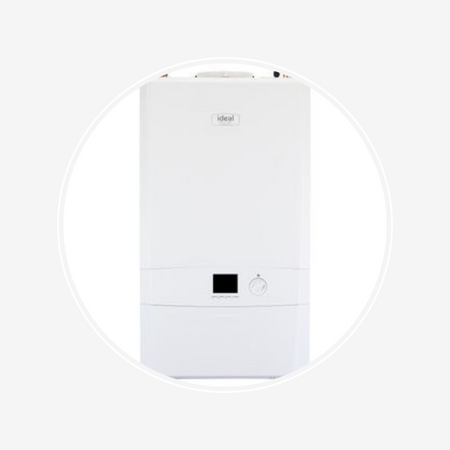
What is an Electric Boiler?
Similar to gas boilers, an electric boiler can come in three different types;
- Storage boilers are a type of boiler that has a hot water cylinder built in that stores hot water for use when needed. The water is heated up during off-peak hours when electricity is cheaper.
- Combination boilers are the most efficient type of electric boiler that heats water for both central heating and domestic hot water for taps, baths, or showers on demand.
- Flow boilers can heat water as it passes through the boiler. They are the least efficient type of electric boiler, but they are also the simplest and cheapest to install.
Each serves the same function as a gas boiler, but instead is fuelled by electricity instead of gas. Electric boilers will convert electricity into heat to warm up the water that provides heating to your customer's home and tap fixtures rather than burning gas fuel.
Electric boilers are usually less common than gas boilers, however - they are a good solution if a customer's property is not connected to a gas network.
Electric boilers can provide customers with a better efficiency rating than other gas boilers as they use less energy to heat homes, saving customers hundreds on heating bills. As they don't produce carbon emissions, they are considered better for the environment to meet net-zero goals by 2050.
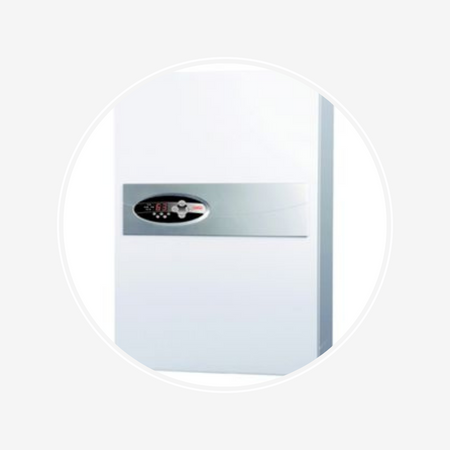
Are Oil Boilers Still Necessary?
Oil boilers are considerably less common than gas boilers, however - there are over four million homes in the UK that aren't connected to the gas main that needs to be heated in other ways - such as oil.
Having an oil boiler is often the best way to do this. The oil tank can be fitted on-site and filled with oil as and when it's needed. The tank should be located on your customer's property, and there are specific installation regulations that need to be followed by installers.
- First, the base of the oil tank must be durable enough to support the weight of the tank and its contents.
- Secondly, the oil tank must be situated on solid ground, such as paving slabs or concrete and ensure they are at least 42mm thick and extend out at least 300mm beyond the tank's perimeter.
- Lastly, suppose the oil tank is located quite close to your customer's home. In that case, a firewall must be positioned between the tank and your home.
An oil boiler operates in a very similar fashion to gas boilers. In this case, oil is used, which is ignited in the combustion chamber, and in turn, the heat exchanger will warm up cold water, either from a cold water tank in a conventional system or from the mains in a combi system.
The heated water can then be used in radiators, taps and showers to provide customers with heating and hot water.
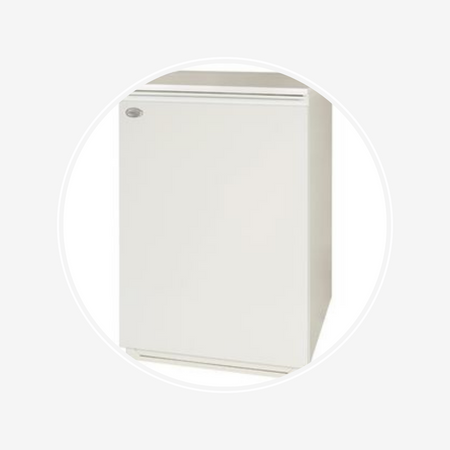
What is an LPG Boiler?
LPG boilers stand for Liquid Petroleum Gas, which works the same as traditional gas boilers. The only key difference is that the petroleum gas is stored in a tank.
The tank is located separately outside the customer's property, usually in the garden, and has to be topped up by an LPG supplier. It is possible to have a tank underground if you do not wish to lose any garden space.
LPG boilers work similarly to natural gas boilers as they can continue to produce energy to heat radiators or underfloor heating and provide hot water for your customers.
It's proven that LPG is known to be a safe and clean gas, making it a very efficient method of home heating for off-grid properties.
There are some advantages of using an LPG boiler, such as;
- LPG is considered a cleaner fuel in comparison to oil as it burns less carbon, preventing soot and ash build-up.
- LPG is more dense than oil, meaning you can get more heat from burning the same quantity.
- LPG boilers can be installed at a range of properties, from park homes, cabins and huts, as they tend to be smaller meaning they do not take up as much space.
- Less noise is produced thanks to their compact size.
There are, however, some drawbacks for installers to take into consideration as well, like;
- The cost of LPG can be more expensive than mains gas.
- LPG has to be delivered via a lorry or truck, so it's important they can access the property quickly and safely.
- Before installing an LPG external tank, customers may need planning permission from our local authority.
- LPG is not subject to a price cap, meaning the supplier can charge whatever they want. This has been a significant issue during the current cost of living crisis.
- LPG is a cleaner fuel, however - still derived from fossil fuels, meaning it is not a renewable choice.
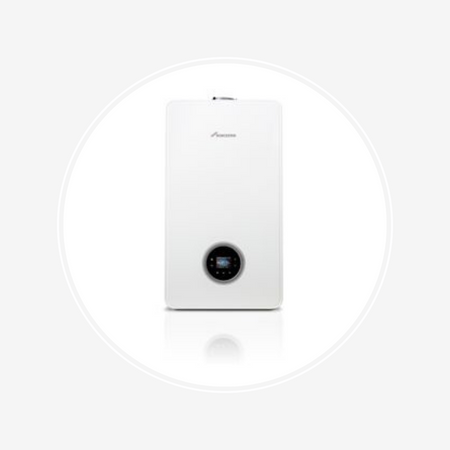
What are Hydrogen Ready Boilers?
Installers need to understand what the term hydrogen-ready or hydrogen blend means, as more newer boilers will have the ability to burn either natural gas or pure 100% hydrogen.
Hydrogen-ready boilers such as the Ideal Logic Max range provide the key to converting the existing gas distribution networks from natural gas, predominantly methane, to hydrogen.
Unlike most carbon-heavy fossil fuels such as coal, oil and gas - hydrogen does not produce carbon dioxide when combusted.
This means that by using hydrogen blend-ready boilers, carbon emissions could be significantly reduced in homes, thus helping to combat global warming and improve environmental sustainability, allowing us to decarbonise all sectors of the UK economy to meet our net zero targets by 2050.
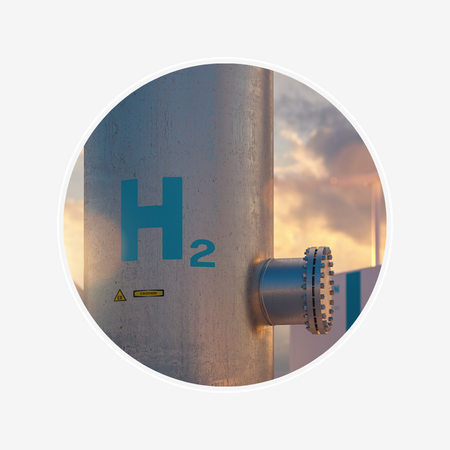
We hope this has helped new installers in the trade better understand the many types of boilers available - so you can be ready for your first installation project.
Remember to always prioritise efficiency and safety when selecting a boiler for your clients.
With proper knowledge and approach, you can ensure that every installation succeeds and that your clients are happy and comfortable with their new heating system.
City Plumbing can provide new installers with everything required. We stock a wide range of boilers, tools and copper and brassware to help you complete your next installation.
When you are ready to take it up a notch and further your installation skills, our Energy Efficiency Team can support installers with indemnified system designs and impartial advice on technologies, manufacturers and market direction with GTEC Training.
If you require further assistance, contact our heating experts or visit your local City Plumbing branch.
Other articles

Gas Safety Week 9-15th September 2024
12 Sep 2023 ・ 5 mins

Don't miss the B.U.S… Boiler Upgrade Scheme Grant Increased for 2024
13 Oct 2023 ・ 5 mins

Helping Installers Transition their Business
29 Sep 2023 ・ 4 mins
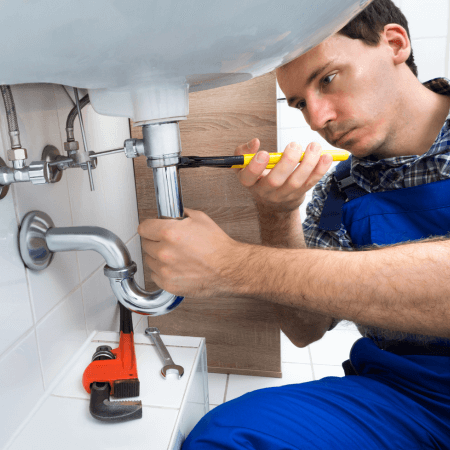
Important Plumbing Regulations for Installers
19 Sep 2023 ・ 3 mins



